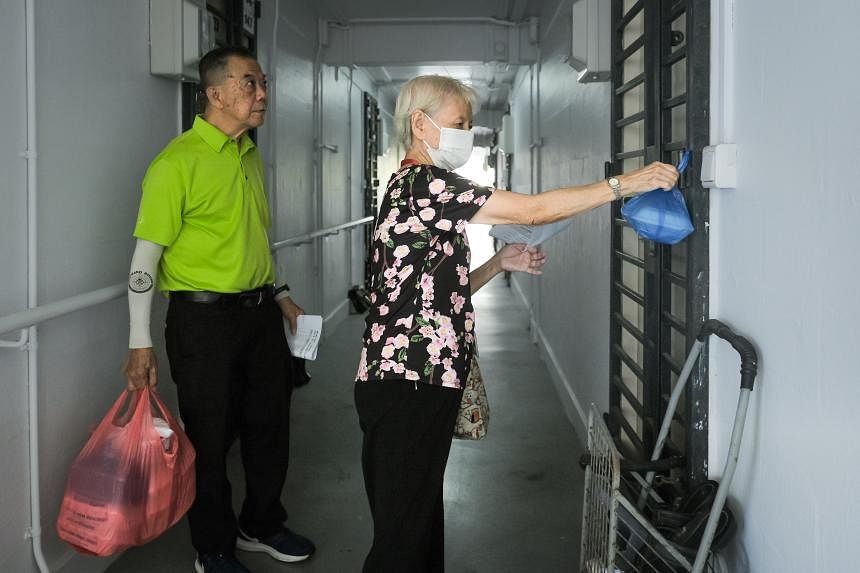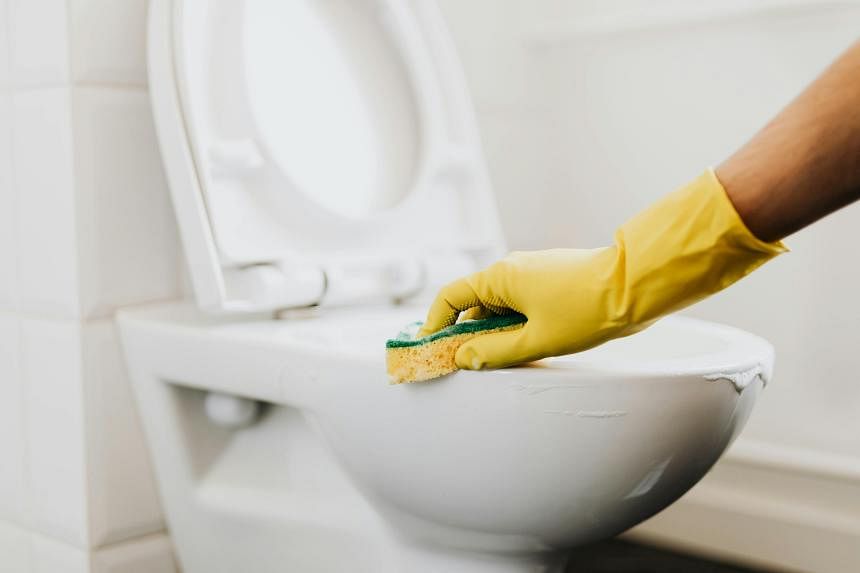Micro-job scheme for seniors launched after pilot, covers 4 more active ageing centres

Mr Shue Teng Lee, 72, and Madam Green Lillian Janet, 83, from Thye Hua Kwan Moral Charities Active Aging Centre @ Macpherson delivering food to nearby residents. ST PHOTO: GAVIN FOO

Joyce Teo
Senior Health Correspondent
AUG 14, 2023
SINGAPORE – A scheme that allows seniors to get paid for simple tasks such as delivering food to other seniors has been expanded to another four active ageing centres, with more expected to come onboard soon.
There are now 15 active ageing centres on board, after the scheme was first piloted in January at the Bedok Active Ageing Centre of Thye Hua Kwan Moral Charities (THKMC).
Today, 11 of THKMC’s 18 centres have signed up and about 50 seniors – who are mostly in their 60s and 70s – are involved. They have supported nearly 200 beneficiaries and completed more than 22,000 micro-jobs, receiving $1 for every task.
The scheme was developed by the Centre for Seniors (CFS) in collaboration with THKMC and the Agency for Integrated Care (AIC).
Deputy Prime Minister Heng Swee Keat launched the initiative on Monday during the THKMC Bedok Active Ageing Centre’s National Day celebration, held in the neighbourhood fitness park.
Active ageing centres are places where seniors can access a range of activities including befriending or buddying programmes, health-related initiatives and referral to care services. The micro-job scheme is one of the latest initiatives at the centres.
Singapore is expanding the number of such centres from 119 to 220 by 2025 to help its fast-growing pool of seniors age well in the community.
The micro-jobs, which include providing medication reminders in person, were chosen based on feedback from seniors. THKMC will gradually expand the scheme to its other seven centres.
Since early August, four active ageing centres run by Lions Befrienders have started offering micro-jobs to seniors.
Its executive director, Ms Karen Wee, said on the sidelines of Monday’s launch that Lions Befrienders is now working with THKMC and CFS to expand the scheme to its remaining six centres in the next two months.
Previous similar schemes were not successful as they included jobs such as cleaning ones that demanded a fixed routine of longer hours, she said.
“A food package delivery may take only half an hour to an hour. You have a certain delivery time and don’t have to do it for stretches of four to eight hours.”
These micro-jobs are also near the seniors’ homes, and they can work in their own time and at their own target, she added.
Currently, almost all the beneficiaries in the scheme are those on financial assistance living in rental flats.
In future, the initiative can be expanded to include those living in their purchased flats who want food delivery, Ms Wee said.
AIC will work with CFS to include other centres across Singapore. More complex tasks will be added to the scheme progressively.
THKMC, for example, is looking to introduce additional tasks like getting seniors to organise and conduct activities at their active ageing centres. Centre staff can then channel their time to other duties, such as conducting home visits under the befriending and buddying programme, or checking on frail and housebound seniors, said THKMC chief executive Jason Lee.
Ms Lim Sia Hoe, executive director of CFS, said the agency wants to empower active seniors to continue contributing to the workforce and society, particularly as many of them wish to stay engaged in the workforce after retirement.
The scheme is supported by the Tote Board Community Health Fund, which backs the piloting of innovative programmes for the community care sector.
Ms Fatimah Kalip, 68, joined the initiative in January. She works five days a week, delivering food to the elderly in Bedok twice a day. She also checks if they have taken their medication, and gets them to sign a form if they have done so.
“I can get paid and I can pay my phone bill,” said Ms Fatimah, who used to do various jobs, including working as a helper at hawker stalls and providing catering help, to support her five children.
They are now all married and live with their own families. Her husband died when she was 45 and she prefers to live alone as she is used to being independent.
“I joined the Bedok active ageing centre two years ago and have made a lot of friends. Before this, I just sat at home and made kueh.”



